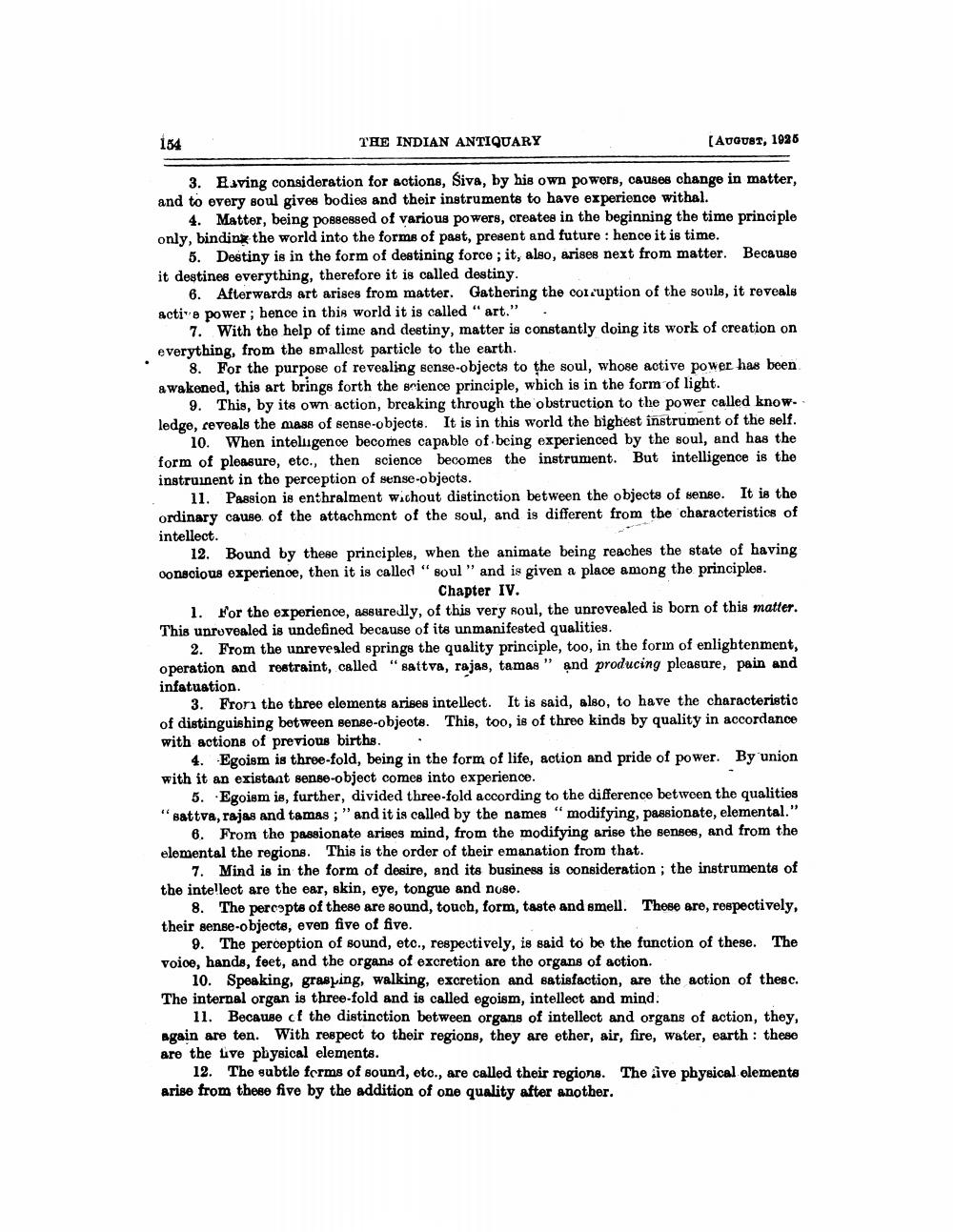________________
THE INDIAN ANTIQUARY
[AUGUST, 1926
3. Baving consideration for actions, Siva, by his own powers, causes change in matter, and to every soul gives bodies and their instruments to have experience withal.
4. Matter, being possessed of various powers, creates in the beginning the time principle only, binding the world into the forms of past, present and future : hence it is time.
5. Destiny is in the form of destining force; it, also, arises next from matter. Because it destines everything, therefore it is called destiny.
6. Afterwards art arises from matter. Gathering the con cuption of the souls, it reveals active power; hence in this world it is called "art.” .
7. With the help of time and destiny, matter is constantly doing its work of creation on everything, from the smallest particle to the earth.
8. For the purpose of revealing sense-objects to the soul, whose active power has been awakened, this art brings forth the srience principle, which is in the form of light.
9. This, by its own action, breaking through the obstruction to the power called know. ledge, ceveals the mass of sense-objects. It is in this world the highest instrument of the self.
10. When intelligence becomes capable of being experienced by the soul, and has the form of pleasure, etc., then science becomes the instrument. But intelligence is the instruinent in tho perception of sense-objects.
11. Passion is enthralment wachout distinction between the objects of sense. It is the ordinary cause of the attachment of the soul, and is different from the characteristics of intellect.
12. Bound by these principles, when the animate being reaches the state of having conscious experienoe, then it is called "soul" and is given a place among the principles.
Chapter IV. 1. For the experience, assuredly, of this very soul, the unrevealed is born of this matter. This unrevealed is undefined because of its unmanifested qualities.
2. From the unrevealed springe the quality principle, too, in the form of enlightenment, operation and restraint, called "sattva, rajas, tamas" and producing pleasure, pain and infatuation.
3. From the three elements arises intellect. It is said, also, to have the characteristic of distinguishing between sense-objects. This, too, is of three kinds by quality in accordance with actions of previous births. .
4. Egoism is three-fold, being in the form of life, action and pride of power. By union with it an existant sense-object comes into experience.
5. Egoism is, further, divided three-fold according to the difference between the qualities "sattva, rajas and tamas ; "and it is called by the names "modifying, passionate, elemental."
6. From the passionate arises mind, from the modifying arise the senses, and from the elemental the regions. This is the order of their emanation from that.
7. Mind is in the form of desire, and its business is consideration; the instruments of the intellect are the ear, skin, eye, tongue and nose.
8. The percepts of these are sound, touch, form, taste and smell. These are, respectively, their sense-objecte, even five of five.
9. The perception of sound, etc., respectively, is said to be the function of these. The voice, hands, feet, and the organs of excretion are the organs of action.
10. Speaking, grasuing, walking, excretion and satisfaction, are the action of thesc. The internal organ is three-fold and is called egoism, intellect and mind.
11. Because of the distinction between organs of intellect and organs of action, they, again are ten. With respect to their regions, they are ether, air, fire, water, earth: these are the live physical elements.
12. The subtle forms of sound, oto., are called their regions. The live physical elements arise from these five by the addition of one quality after another.




